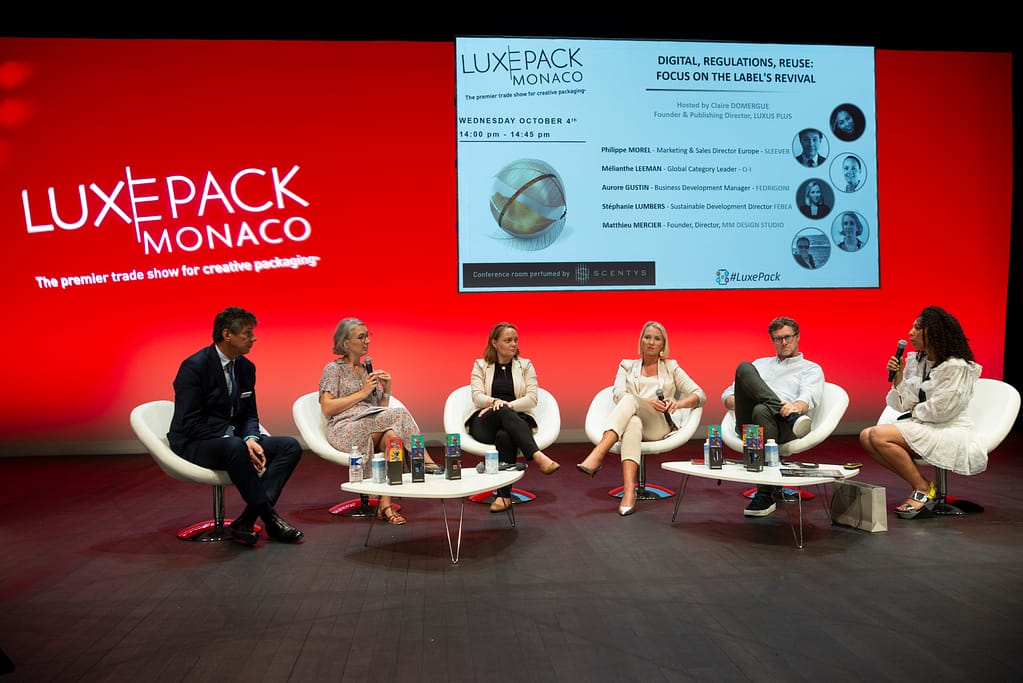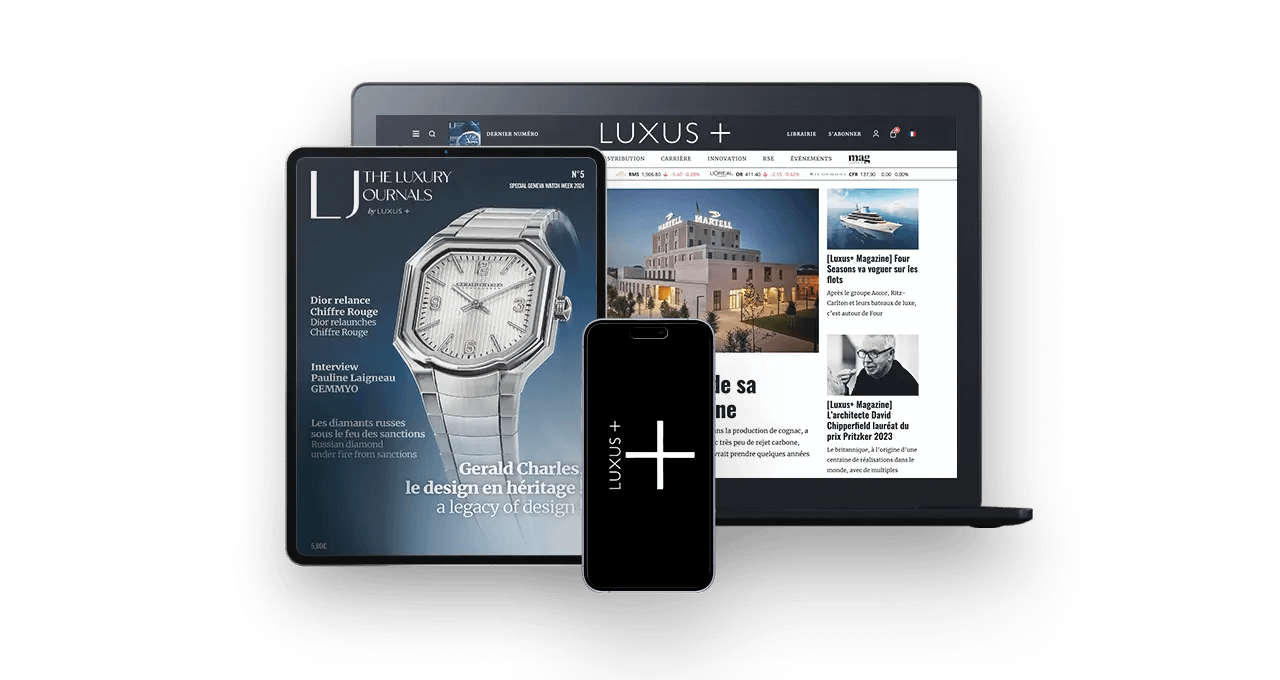LUXE PACK Monaco, the trade show dedicated to packaging innovations, was held on October 4. Claire Domergue, publishing director of LUXUS PLUS, organized and moderated a round table on “Digital, regulation, reuse: focus on the label revival”. The latter provided an opportunity for in-depth reflection on the future of labeling, at a time when food and cosmetics brands are facing new regulations.
Taking part in the discussion were Philippe Morel, marketing director of Sleever (expert in the manufacture of techno-shrink labels), Matthieu Mercier, founder of MM Design Studio, Stéphanie Lumbers, director of the sustainable development sector at FEBEA (Fédération des Entreprises de la Beauté), Mélianthe Leeman, marketing director of the wines and spirits sector at O-I (leader in glass packaging), and Aurore Gustin, business development manager at Fedrigoni (producer of high-end packaging papers).
Each took the floor to present a responsible labeling solution to which they had contributed.
Solutions still under development
According to Stéphanie Lumbers, it’s high time cosmetics and food brands took up the themes of digitalization, regulation and label reuse. And it’s essential to develop the label in such a way as to make it both regulatory and aesthetically pleasing.
While brands are faced with new regulatory and physical constraints (notably display obligations such as info sort for household products since March 9), consumers are demanding precise knowledge of the conditions under which their products are manufactured.
Several alternatives to the traditional label have been proposed, but each of them still has its limitations.
To meet the aesthetic challenge for luxury products, Matthieu Mercier argues that the use of an NFC chip (already present in our bank cards) can bring together several pieces of information (including the nutri-score, which will be mandatory on alcohol bottles from December 8, 2023), in a more discreet way than a QR Code. The founder of MM Design Studio has been working on this system since 2016, but thinks it will take a few more years to democratize it.
The same applies to Sleever’s glue-free shrink labels and Mélianthe Leeman’s direct-to-bottle digital printing project. In the latter case, paper is no longer necessary, and the visual effect is pleasing to the consumer. The ink is organic, and the information printed can be modified on a daily basis in line with new regulations. However, a glass bottle modified with ink is not considered recyclable.
Technologies not yet materialized but in the pipeline were also mentioned, including Sleever’s color smart. With the latter, buyers would simply need to take a photograph of the product to be redirected to a web page containing all the information.
Cumulative regulations
Read also > LUXE PACK IN GREEN AWARDS 2023 HONORS THREE RESPONSIBLE INITIATIVES
Featured Photo: © LUXE PACK Monaco







































